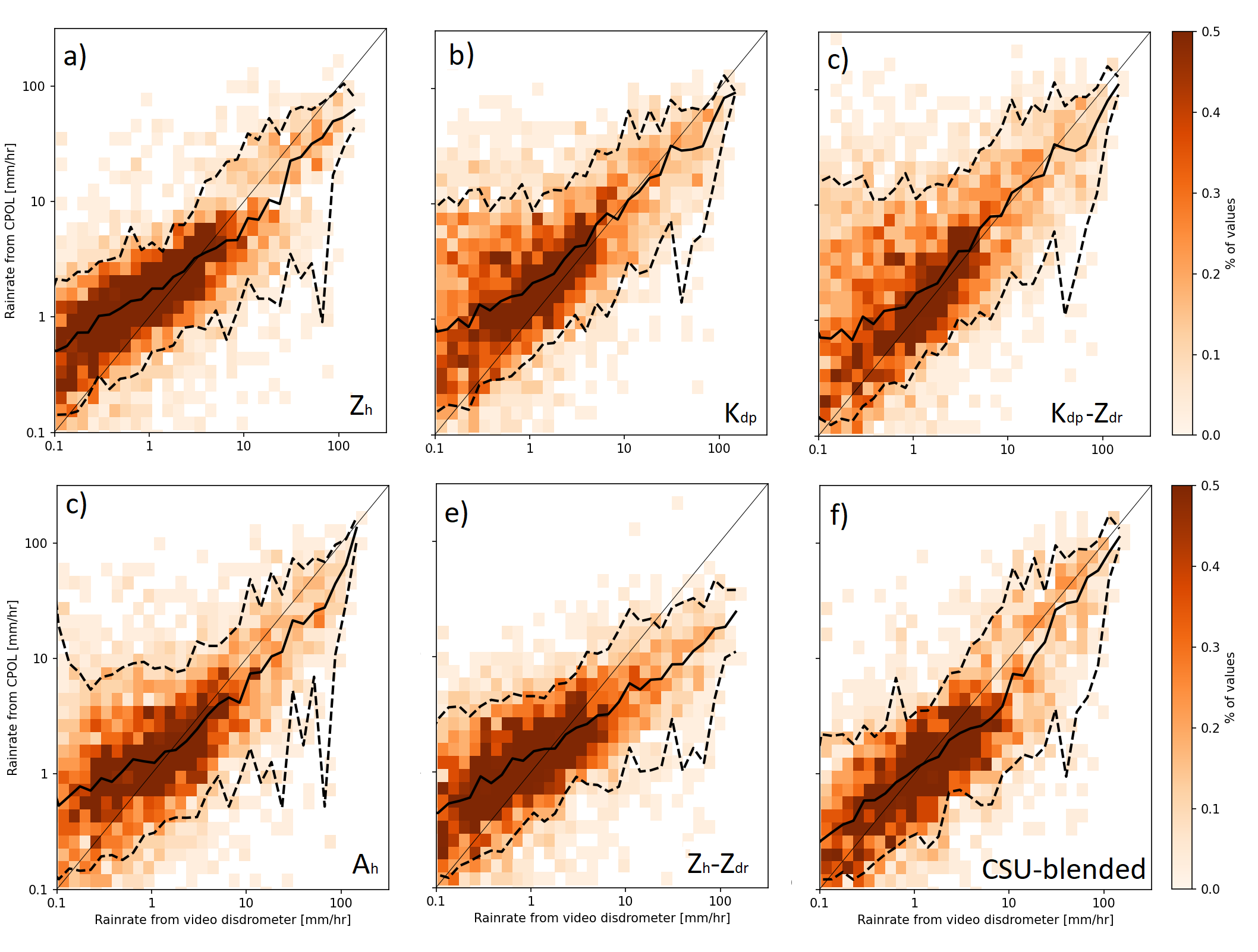The development of rainfall retrievals from radar at Darwin
Submitter
Jackson, Robert — Argonne National Laboratory
Collis, Scott Matthew
— Argonne National Laboratory
Area of Research
Cloud Processes
Journal Reference
Jackson R, S Collis, V Louf, A Protat, D Wang, S Giangrande, E Thompson, B Dolan, and S Powell. 2021. "The development of rainfall retrievals from radar at Darwin." Atmospheric Measurement Techniques, 14(1), 10.5194/amt-14-53-2021.
Science

Figure 1. Normalized frequency distribution 10-min averages of rainfall rate estimated from the lowest gate from CPOL over VDIS using different estimators as a function of 10-min averages of rainfall rate recorded by the VDIS. Estimators used to estimate rainfall rate from CPOL are shown in each panel. Solid lines denote medians, and dashed lines are the 5th and 95th percentiles of the estimated rainfall rate from CPOL. From journal.
We used four years of ground disdrometer observations to develop rainfall rate estimators for ARM scanning precipitation radars at the ARM Tropical Western Pacific site.
Impact
We were able to develop a rainfall estimator that is applicable for developing rainfall estimates from ARM radars sampling storms in the tropics.
Summary
We tested several different rainfall estimators on the C-band polarization radar data by comparing rainfall estimates from the rainfall estimators against the rainfall rate measurements from the ground-based disdrometer. We found that Colorado State University's blended rainfall rate algorithm, with adjustments to the coefficients used by the algorithm made in accordance with the disdrometer observations, provided the best estimate of rainfall for these storms.
Keep up with the Atmospheric Observer
Updates on ARM news, events, and opportunities delivered to your inbox
ARM User Profile
ARM welcomes users from all institutions and nations. A free ARM user account is needed to access ARM data.


















